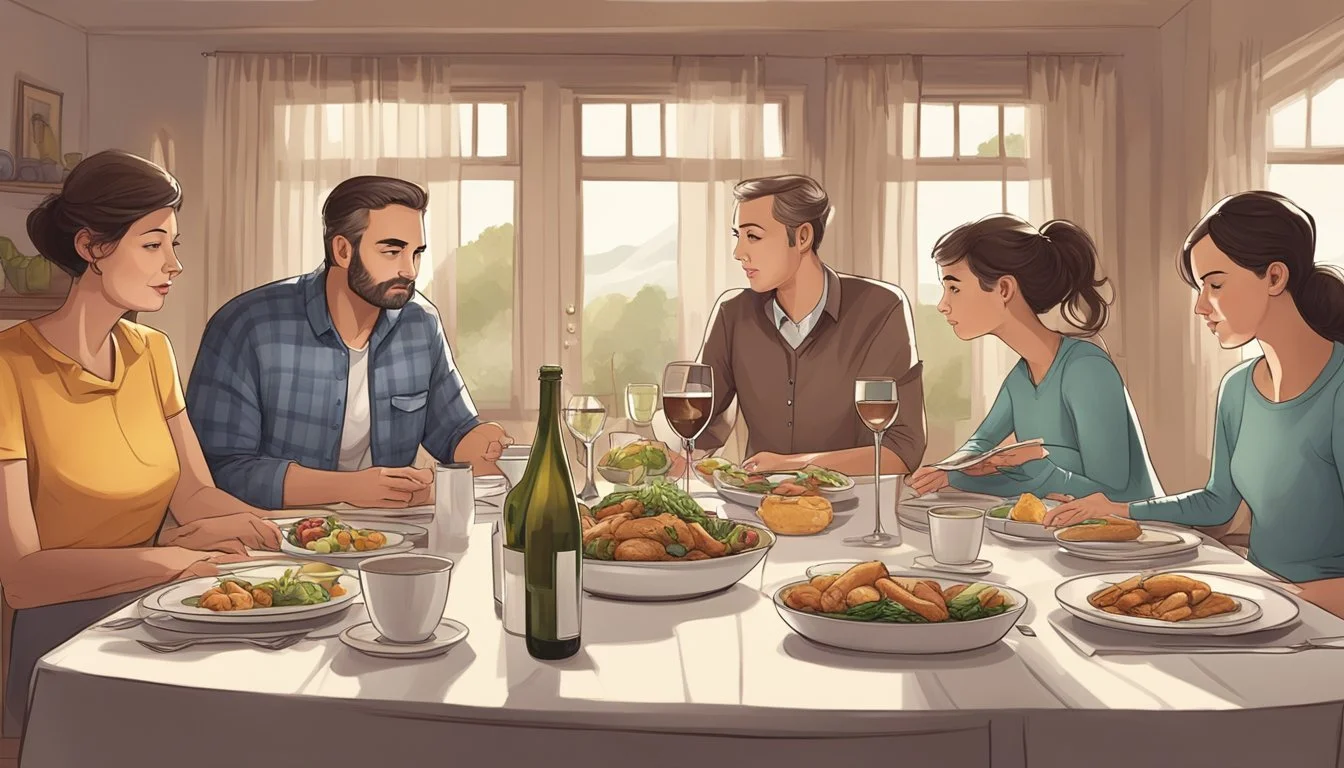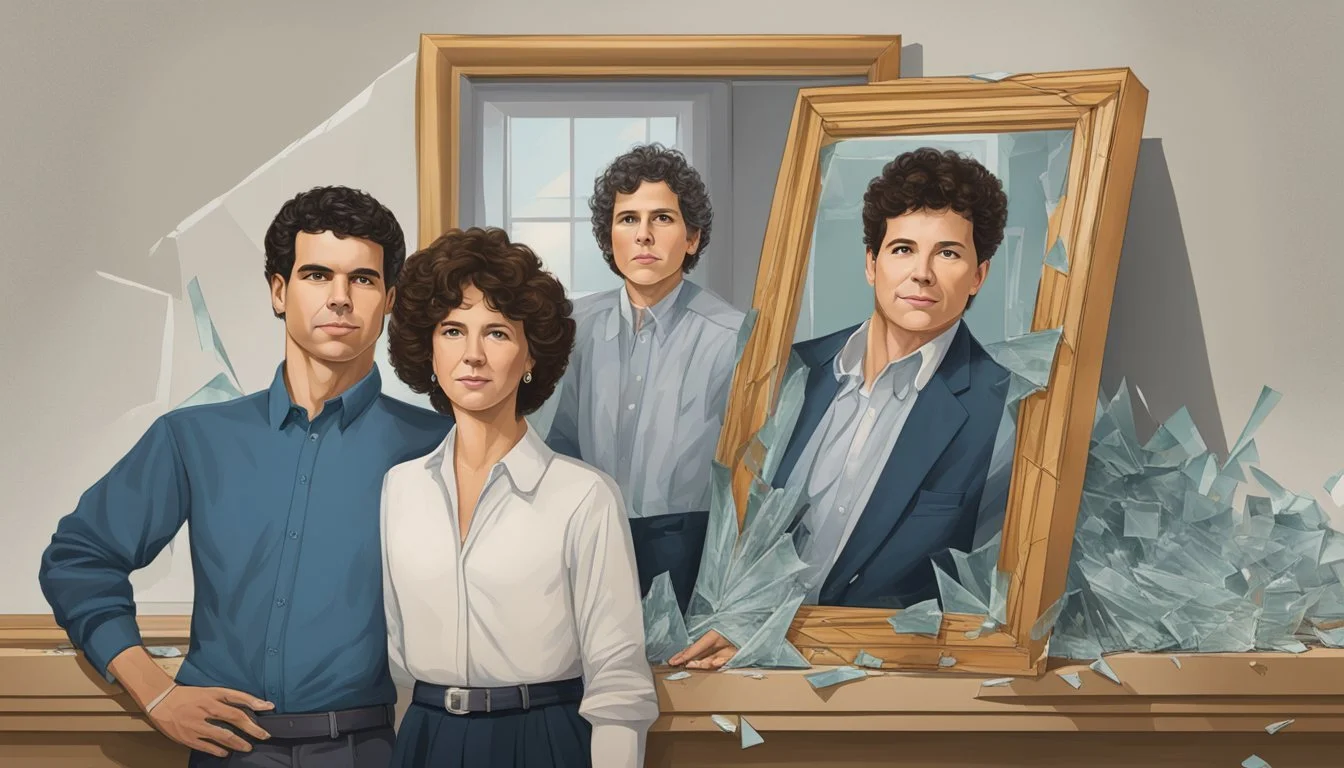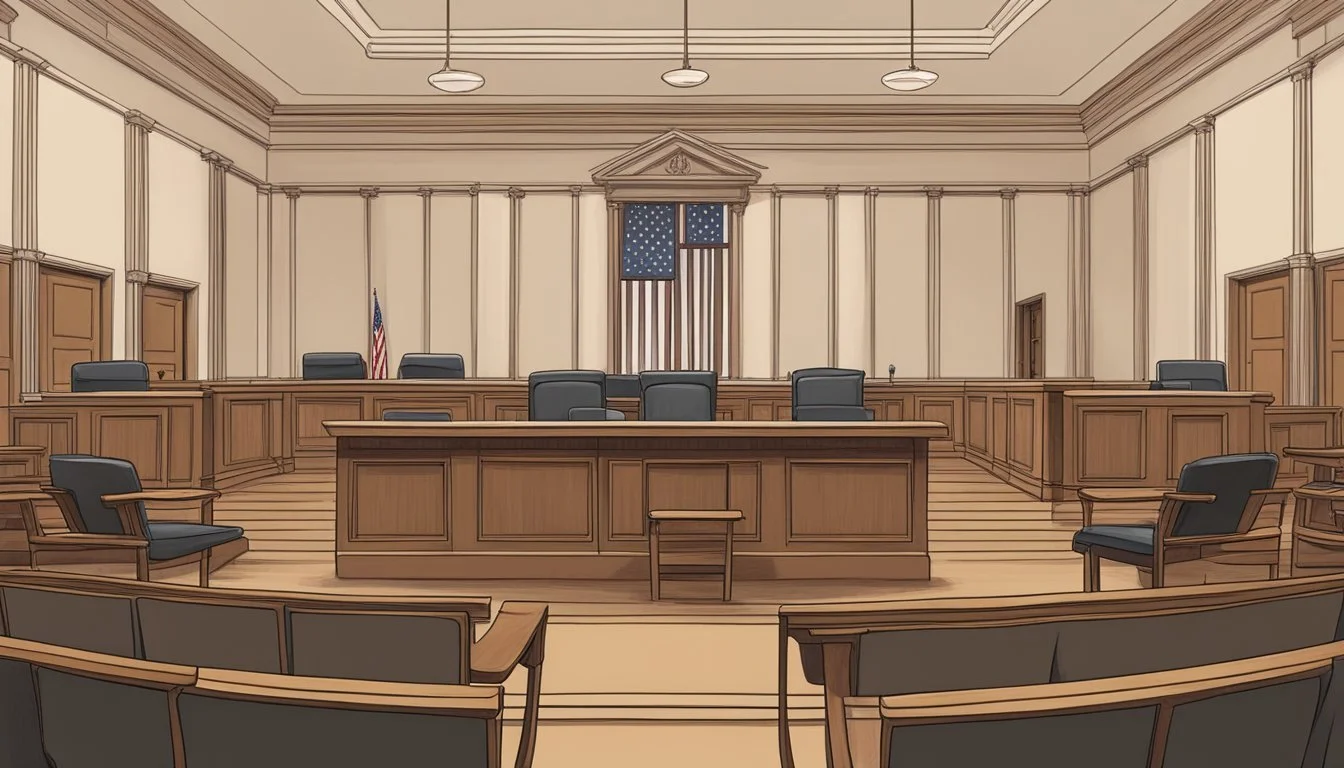The Psychological Ripple Effect: How the Menendez Brothers' Case Changed Family Dynamics in America
A Lasting Impact on Parental Relationships
The Menendez brothers' case captivated America in the early 1990s, exposing dark secrets hidden behind the facade of a wealthy Beverly Hills family. On August 20, 1989, Lyle and Erik Menendez brutally murdered their parents, Jose and Kitty Menendez, in their mansion. The ensuing trials revealed allegations of long-term sexual abuse and family trauma, sparking nationwide discussions about domestic violence and dysfunctional family dynamics.
The Menendez case forced Americans to confront the reality that abuse can occur in any household, regardless of socioeconomic status or outward appearances. This realization led to increased awareness of child abuse and domestic violence, prompting many families to reevaluate their own relationships and communication patterns. Mental health professionals saw a surge in individuals seeking therapy to address unresolved family issues and childhood traumas.
The psychological ripple effect of the Menendez case extended far beyond the courtroom. It challenged societal assumptions about family structures and encouraged open dialogue about topics previously considered taboo. Schools and community organizations implemented new programs to educate children about personal safety and recognizing signs of abuse. The case also influenced popular culture, with numerous books, documentaries, and TV shows exploring the complexities of family dynamics and the long-term effects of childhood trauma.
Background of the Menendez Brothers' Case
The Menendez brothers' case shocked America in 1989 with a brutal double murder in Beverly Hills. Lyle and Erik Menendez, two young men from a wealthy family, were accused of killing their parents in a crime that captivated the nation.
Menendez Family Profile
Jose Menendez, a successful entertainment executive, and his wife Kitty lived in a luxurious Beverly Hills mansion with their sons Lyle and Erik. The family projected an image of affluence and success. Jose had immigrated from Cuba and built a thriving career in the music and film industry.
Kitty, a former beauty queen, was a homemaker devoted to her family. Lyle, the older brother, attended Princeton University. Erik, the younger sibling, was a tennis prodigy with professional aspirations.
Despite their outward appearance of prosperity, the Menendez household reportedly harbored dark secrets and tensions beneath the surface.
Details of the Murder
On August 20, 1989, Jose and Kitty Menendez were shot multiple times with shotguns in their Beverly Hills home. The crime scene was gruesome, with both victims suffering numerous wounds to their bodies and heads.
Lyle and Erik initially claimed they were not home during the killings. They told police they had been at a movie theater and discovered their parents' bodies upon returning. The brothers appeared distraught and called 911 to report the murders.
Investigators found no signs of forced entry or robbery. This detail, combined with the brutal nature of the crime, raised suspicions about the brothers' involvement.
Public Reaction to the Crime
The murders of Jose and Kitty Menendez sent shockwaves through Beverly Hills and beyond. The affluent community was stunned by such violence in their midst. Media coverage intensified as details emerged about the family's wealth and the brothers' lavish spending after their parents' deaths.
Public opinion was initially sympathetic to Lyle and Erik, viewing them as grieving sons. However, sentiment shifted as evidence mounted against them. The case sparked debates about wealth, family dynamics, and the justice system.
Television coverage of the trials drew massive audiences. The Menendez case became a cultural phenomenon, inspiring books, documentaries, and dramatizations that continue to captivate the public decades later.
The Trials and the Media Frenzy
The Menendez brothers' case captivated the nation, sparking intense media coverage and public debate. The trials became a spectacle that reshaped how high-profile cases were perceived and reported.
First and Second Trials
The Menendez brothers faced two separate trials. The first, in 1993, ended in hung juries for both Erik and Lyle. This unexpected outcome led to a second trial in 1995.
In the initial proceedings, separate juries for each brother were unable to reach unanimous verdicts. The defense's strategy of portraying the brothers as victims of abuse garnered sympathy from some jurors.
The second trial in 1995 proved more conclusive. A single jury heard the case against both brothers. This time, the prosecution successfully countered the abuse claims, leading to guilty verdicts for first-degree murder.
Role of the Media
Media coverage of the Menendez case was extensive and often sensationalized. News outlets competed for exclusive information and interviews, turning the trials into a national obsession.
Tabloid journalism thrived, with reporters digging into the family's past and the brothers' personal lives. Magazine covers, newspaper headlines, and TV reports kept the public engaged throughout the legal proceedings.
The case became a cultural touchstone, inspiring books, movies, and TV specials. This intense focus on the Menendez brothers influenced public perception and sparked debates about wealth, family dynamics, and justice.
Impact of Televised Proceedings
The decision to televise the Menendez trials had far-reaching consequences. Court TV broadcast the proceedings live, bringing the courtroom drama directly into American homes.
This unprecedented access allowed viewers to follow the case in real-time, forming their own opinions about the evidence and testimonies. Legal experts provided commentary, educating the public about courtroom procedures and strategies.
The televised trials set a precedent for future high-profile cases. They demonstrated the power of media in shaping public opinion and raised questions about the intersection of justice and entertainment.
Psychological Elements of the Case
The Menendez brothers' case involved complex psychological factors that shaped both the crime and trial. These elements shed light on family dynamics, trauma, and legal considerations surrounding abuse claims.
Family Dynamics and Abuse Allegations
Erik and Lyle Menendez claimed they suffered years of physical, emotional, and sexual abuse from their father. This alleged abuse became a central part of their defense strategy. The brothers argued that their actions stemmed from fear and trauma rather than greed.
Their relationship with their mother, Kitty Menendez, was also scrutinized. Some evidence suggested she may have been aware of the abuse but did not intervene.
The case highlighted how dysfunctional family dynamics can have severe consequences. It sparked public discussions about child abuse within seemingly successful families.
Trauma and Criminal Behavior
Psychologists examined the impact of prolonged trauma on the brothers' mental state. Erik and Lyle's defense team argued that years of abuse led to post-traumatic stress disorder (PTSD).
This trauma, they claimed, distorted the brothers' perception of threat and danger. The defense suggested that PTSD influenced their decision to kill their parents.
Experts debated whether childhood trauma could explain or justify such extreme criminal behavior. The case raised questions about the long-term effects of abuse on decision-making and impulse control.
Self-Defense and Legal Implications
The Menendez brothers' claim of self-defense based on abuse allegations presented unique challenges for the justice system. Their attorneys argued that the killings were an act of "imperfect self-defense" due to fear of ongoing abuse.
This defense strategy pushed legal boundaries and sparked debates about the admissibility of abuse claims in murder cases. It raised questions about how the law should handle situations where alleged victims kill their abusers.
The case highlighted the complex interplay between psychology and criminal law. It challenged traditional notions of self-defense and prompted discussions about reforming laws related to abuse victims.
Cultural and Societal Impact
The Menendez brothers' case profoundly shifted American perspectives on family dynamics, true crime media, and legal discourse. Its ripple effects reshaped cultural attitudes and sparked new conversations about complex family issues.
Changing Views on Parent-Child Relationships
The trial challenged idealized notions of family life, exposing hidden dysfunctions behind closed doors. It prompted many to reconsider assumptions about parental authority and children's rights within families.
Public discussions emerged about the long-term effects of child abuse and neglect. This increased awareness led to more open dialogues about previously taboo topics like incest and domestic violence.
The case highlighted the complexity of family relationships, showing how love and abuse can coexist. It sparked debates on the limits of parental control and the importance of believing children who report abuse.
Influence on True Crime Entertainment
The Menendez trial captivated audiences, fueling a growing appetite for true crime content. It became a blueprint for sensationalized media coverage of high-profile cases.
Television networks capitalized on public interest, producing numerous documentaries and dramatizations. This trend continues today with streaming platforms creating Menendez-focused series and specials.
The case's exploration of family secrets and psychological motivations set a template for in-depth true crime storytelling. It paved the way for more nuanced portrayals of criminals and their backgrounds in media.
Legacy in American Criminal and Civil Discourse
The trial sparked legal debates about using "abuse excuse" defenses in criminal cases. It raised questions about the intersection of psychology and law in determining criminal responsibility.
Civil courts saw an increase in lawsuits related to childhood trauma and delayed disclosure of abuse. The case influenced how society views the long-term impacts of adverse childhood experiences.
Legal reforms followed, with some states modifying laws related to child abuse reporting and statutes of limitations. The trial's legacy continues to inform discussions on justice, rehabilitation, and the complexities of family-related crimes.
Legal Repercussions and Developments
The Menendez brothers case continued to have legal implications long after their initial conviction. Appeals, new evidence, and changing perspectives on juvenile justice shaped ongoing developments.
Subsequent Appeals and Legal Battles
Lyle and Erik Menendez pursued multiple appeals following their 1996 conviction. Their legal team argued for a retrial based on alleged jury misconduct and ineffective assistance of counsel. In 2005, the California Supreme Court rejected their appeal, upholding the life sentences without parole.
The brothers filed habeas corpus petitions in federal court, challenging their convictions on constitutional grounds. These efforts were ultimately unsuccessful, with the U.S. Supreme Court declining to hear their case in 2013.
Introduction of New Evidence
In 2018, new evidence emerged supporting the brothers' claims of sexual abuse by their father. This included a letter from their cousin testifying to witnessing inappropriate behavior. Additionally, experts in trauma and child abuse provided insights into the long-term effects of such experiences.
Despite this new information, legal experts noted the high bar for introducing evidence in post-conviction proceedings. The courts have generally been reluctant to reopen the case based on this material.
Resentencing Efforts by George Gascón
Los Angeles County District Attorney George Gascón initiated efforts to review and potentially resentence cases involving juveniles given life sentences. This policy shift, announced in 2020, included a review of the Menendez brothers' case.
Gascón's office examined whether the brothers, who were 21 and 18 at the time of the murders, should be considered for resentencing given evolving views on juvenile justice. This review process sparked debate about rehabilitation potential and the appropriate punishment for crimes committed by young adults.
The DA's office faced legal and political challenges in implementing these policies, with some victims' rights groups opposing potential sentence reductions.
Modern Representations and Continuing Interest
The Menendez brothers case continues to captivate public attention decades after the murders. Media portrayals, interviews, and adaptations have kept the story alive in popular culture.
Television and Film Interpretations
Several TV shows and films have dramatized the Menendez case. In 2017, "Law & Order True Crime: The Menendez Murders" aired as an eight-episode series. The show starred Edie Falco as defense attorney Leslie Abramson and offered a detailed look at the trial.
NBC's "Dateline" has revisited the case multiple times, providing updates and new perspectives. In 2022, Peacock released "Menendez + Menudo: Boys Betrayed," a two-part documentary exploring connections between the brothers' case and the Latin boy band Menudo.
Exclusive Interviews and Retrospectives
Erik and Lyle Menendez have given rare interviews from prison. In 2017, ABC aired "Truth and Lies: The Menendez Brothers," featuring conversations with the brothers. These interviews offered insights into their current thoughts and reflections on the past.
"20/20" has produced several specials on the case, including one in 2020 that featured interviews with Lyle Menendez and former jurors. These retrospectives often include new details or perspectives not previously publicized.
Ryan Murphy's Adaptation in Popular Culture
Ryan Murphy, known for "American Crime Story," tackled the Menendez case in his anthology series. His adaptation, starring Edie Falco, brought renewed interest to the story. The series explored the brothers' troubled family life and the sensational trial that followed.
Murphy's portrayal emphasized the alleged abuse the brothers suffered, presenting a nuanced view of the case. This high-profile adaptation introduced the Menendez story to a new generation of viewers unfamiliar with the original events.
Streaming platforms have made these adaptations widely accessible, ensuring the case remains in the public eye. Netflix has featured documentaries about the case, further expanding its reach to international audiences.
Ethical and Psychological Considerations
The Menendez brothers case raised complex ethical and psychological issues that reverberated through the legal and mental health fields. It spotlighted the delicate balance between patient confidentiality and public safety, while challenging perceptions of victimhood and family dynamics.
Confidentiality and Therapeutic Relationships
Patient confidentiality forms the bedrock of effective therapy. The Menendez case tested these boundaries when tapes of therapy sessions became crucial evidence. This breach sparked debate on the limits of therapist-patient privilege in criminal cases.
Mental health professionals grappled with conflicting duties to clients and society. The case prompted revisions to ethical guidelines, clarifying when confidentiality can be breached to prevent harm.
Trust in therapy was shaken for many. Some feared seeking help, worried their words could be used against them. This highlighted the need for clearer communication about confidentiality limits in therapy.
Dr. Jerome Oziel's Role and Ethics
Dr. Jerome Oziel, the Menendez brothers' therapist, became a central figure in the case. His actions raised serious ethical questions about professional boundaries and the exploitation of therapeutic relationships.
Oziel's involvement with a patient's girlfriend and his handling of therapy tapes came under scrutiny. These breaches of ethics undermined the integrity of the therapeutic process and patient trust.
His testimony further blurred the lines between therapist and witness. This case became a cautionary tale in ethics training for mental health professionals, emphasizing the importance of maintaining clear boundaries.
Public Perception of Victimhood and Perpetration
The Menendez trial challenged public understanding of abuse and its psychological impacts. It sparked debates on the complex nature of victimhood and perpetration within families.
Media coverage shaped public opinion, often oversimplifying the psychological aspects of the case. This highlighted the need for more nuanced discussions of family dynamics and trauma.
The brothers' claims of abuse forced a re-examination of assumptions about family life and child welfare. It prompted increased awareness of hidden family dysfunction and the long-term effects of childhood trauma.





